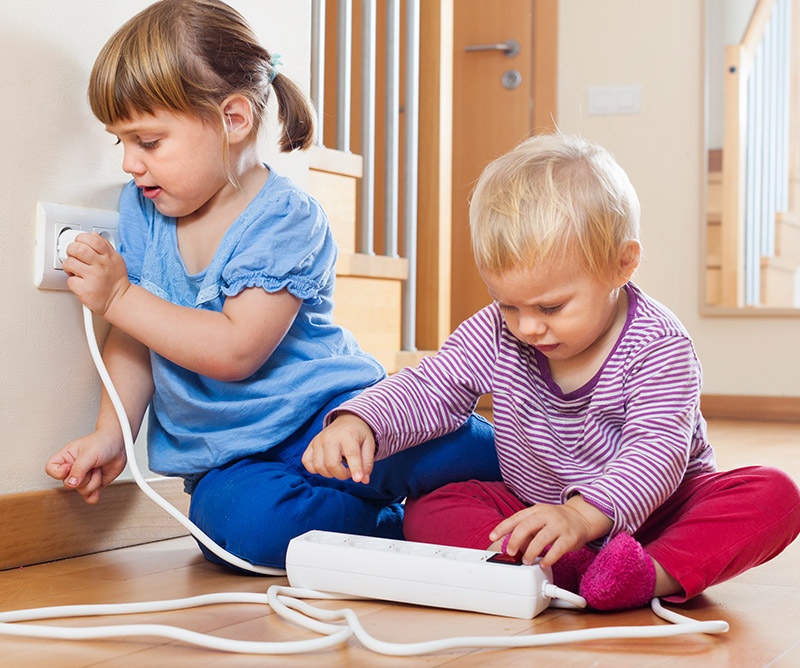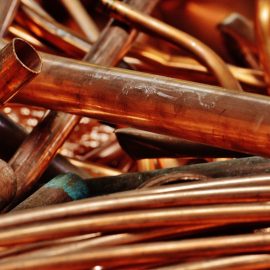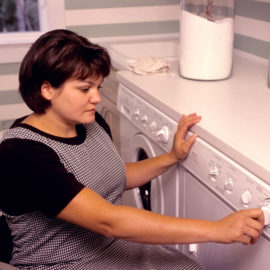
Everyone in your family uses electricity in some way or another. Appliances plug into sockets; lights are turned on by the flip of a switch. It is important that the modern convenience of electricity is not taken for granted and is in proper working condition so everyone in the home can remain safe and sound. There is unpredictable weather such as storms and floods are a part of life. Therefore, it important to take the time to prepare your family and property.

Well at home, it is highly recommended to take care of all the easiest things you can do is check your appliances, lamps and other electrically powered items for frayed wires. No electrical devices should have any visible wires. Bare wire can cause electrical shock to anyone who touches it, including pets. Frayed wires pose a threat even when the electrical item is not turned on. You can temporarily mend frayed wires by tightly wrapping them in electrical tape. But electrical tape will shrink and loose its adhesive properties with heat and age. Replacement of the power cord is necessary in this situation, or if the item is not worth the repair cost, discard it. The hazard bare wires pose to your family is not a risk you should be willing to take.
Here are some simple steps you can take to protect personal safety, preserve electrical equipment and deal with potential damage to the home’s electrical system.
Make sure you are electrically safe by following these 7 tips:
1. Put safety first
Do not attempt do-it-yourself repairs if your property suffers storm damage, including your home’s electrical system and any electrical appliances affected. Be ready before a storm or wet season.
– Install a safety switch and test it regularly.
– Know where to turn off your power, gas and water supply in an emergency.
– Pack up electrical equipment that is not in use and store in a safe place.
2. Protect the system
Ask an electrician with experience in domestic electrical services about having lightning protection installed in your switchboard to protect all appliances.
3. Unplug before the storm
– Unplug outside TVs and non-fixed aerials and store in a dry area.
– When a storm approaches switch off and unplug sensitive appliances or equipment.
– Shut down your solar PV system using the safe isolation procedure.
4. Don’t connect during the storm
Do not use equipment directly connected to electricity, including the stove, during a storm.
– If you have lost power, turn off your power points and unplug electrical equipment.
– Don’t use a fixed telephone during a thunderstorm – it can deliver an electric shock.
– If flood waters are expected, shift electrical equipment to higher locations.
5. Be cautious of wires
Do not go outside to check the damage before an electrician arrives, especially during a storm, as fallen power lines are easily concealed and can be deadly.
– If you are in a car, stay away from power lines, trees and watercourses. Stay in your vehicle.
– If you have a solar PV system that has been damaged in a flood, storm or cyclone you need to have an electrical contractor inspect the system and check it is safe.
– Check your electrical appliances and equipment. Using water-damaged equipment can result in electric shocks and fires.

6. Call an electrician before your energy distributor
If the wires have been torn down in a black out, most houses will require internal repairs before the power can be reconnected.
– Dispose of or have a licensed electrical contractor repair water-affected household electrical items, such as kettles, toasters and televisions.
– Call a licensed electrician to check all hard-wired electrical appliances, such as air-conditioning units or stoves, intended for re-use. This safety check may be required before the power supply can be reconnected.
7. Be confident in your contractor
If you suffer storm damage connect with a local electrician. If you are using power from generators, it can be dangerous if incorrectly managed.
– Connect your generator to your house electrical wiring using a generator change-over switch and appropriate socket. These switches must be installed by a licensed electrical contractor.
– Do not connect your generator to your house using a power point on a power circuit or any other connection point. This can cause dangerous ‘back-feeding’.
During storm seasons, it is worth being extra cautious with your home electrical systems and equipment. The practical stops you take could reduce the risk of electrical fires and safeguard your family from any potential hazards. You can always hire a professional electrician to handle all your electrical wires safely. Check local storm safety advice as different regions experience different severity storms. Sometimes the basic knowledge comes short in the face of the problems you are confronting. Thus, you need to consult a professional certified electrician who specializes in residential, industrial, and/or commercial service for jobs of any size like Lion Electric.



